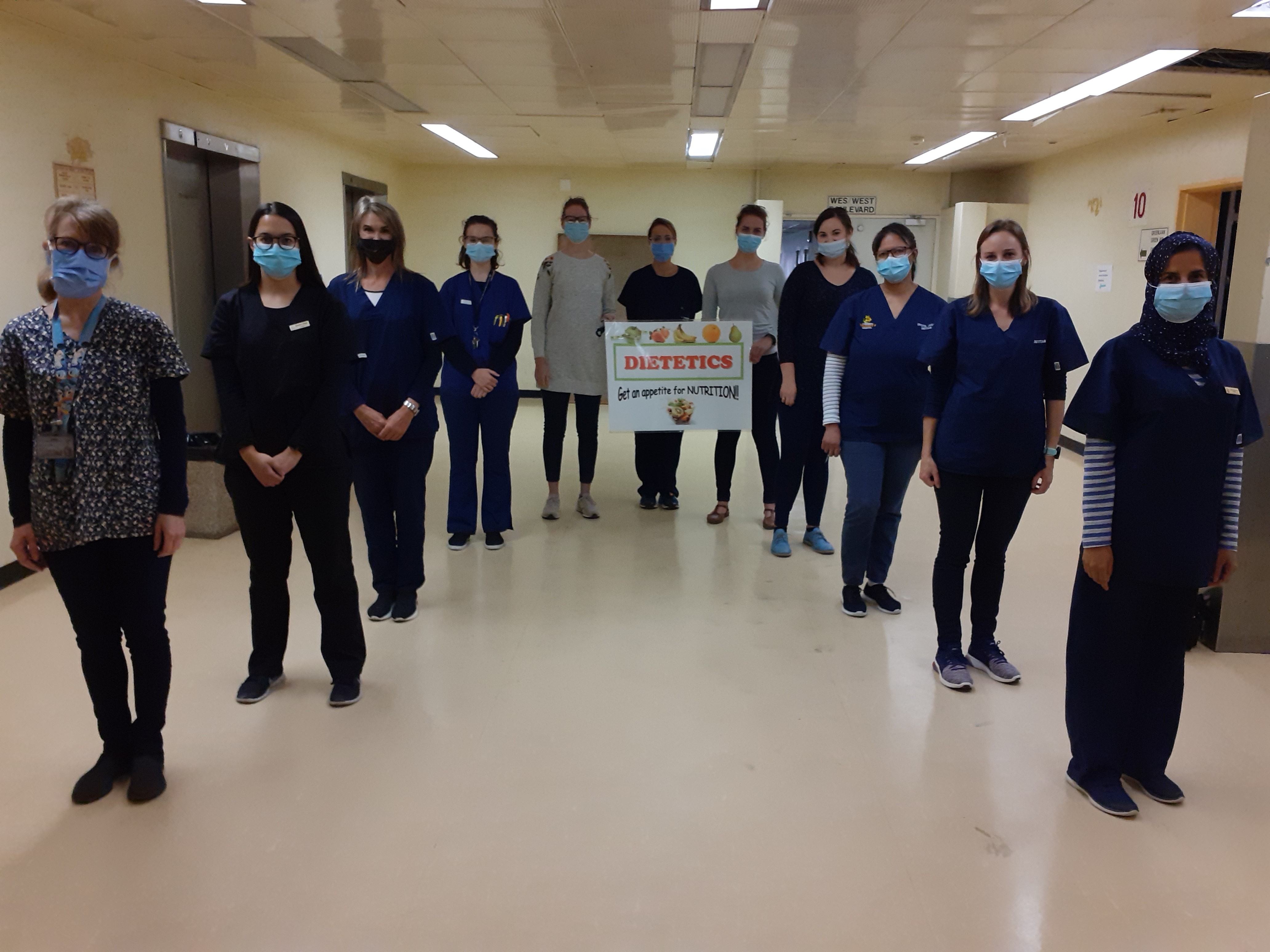
News
An apple a day keeps the doctor away
Nutrition as the building block for all health and wellbeing is vital, as is the role of those who promote and prescribe it to assist patients and the broader community. Commemorating Dietitians Week (7-11 June), Tygerberg Hospital’s dietitians and dietetic support officials are echoing an important message: “An apple a day keeps the doctor away".
The nutritional services at Tygerberg Hospital include a range of specialities, including offering basic healthy lifestyle coaching; training healthcare workers, offering intense medical nutritional therapy for severe and complex diseases, providing the community with nutritional knowledge on therapeutic diets or nutritional support that a hospitalised patient needs.
There is a dedicated dietitian in each of the hospital’s wards who work with fellow dietetic support officials to provide food (food service unit), infant formulas (milk kitchen), and the supplements and tube feeds (tube feed room) every day. This extended nutrition support team, including those who work behind the scenes, collaborate to provide patients with the best nutritional services and outcomes.
The COVID-19 pandemic brought with it several challenges that disrupted the smooth operations of nutrition support services. Dieticians had to stay safe and sane in a world that seemed to be falling apart with high COVID turnover rates, especially in the ICU’s (Intensive Care Units). The high demand for food, supplements and tube feeds also impacted the tube feed room, milk kitchen and food service unit.
"COVID" has been on everyone's lips and many people were unsure what healthy eating and lifestyle approaches they should apply to help prevent COVID and to fight off the disease. “This is especially true for those who were left weak and tired after contracting the virus,” explains Ilde Kellerman, a dietician working in the COVID ICU. “The biggest nutritional challenge of COVID is recovering your strength after being bedridden and experiencing a great amount of muscle loss during one’s illness. The reality is that these patients will have to commit to eating properly (e.g. high protein foods) and doing adequate amounts of physical activity to overcome muscle loss and boost their immune systems. Don’t despair: This process will take time, but dieticians are here to help!”
There is no specific type of food or dietary supplement that can prevent or cure COVID-19. The best approach to prevention is to make sure that your immune system stays strong and healthy. The immune system can be strengthened by what we eat and drink, and through regular exercise. It remains important to eat a well-balanced diet, meaning that you should consume all the food groups (e.g. fruits, vegetables, proteins, etc.). A well-balanced diet can also reduce the risk of developing other health problems including obesity, diabetes, heart disease and some types of cancers.
When you have COVID your nutritional needs increase which means you'll need more protein and energy to fight the disease. A dietitian can help you with this by ensuring that your nutritional needs and requirements are met in hospital. However, if you are at home, it helps to know that eating from all the food groups are still important.
You might feel tired or out of breath during or after COVID which makes it more difficult to eat. Eating small amounts of food throughout the day, choosing soft/moist foods and consuming liquid types of food like soup, smoothies, or home-made protein shakes, can help you to still take in enough nutrients.
You may also struggle from a dry mouth during and after COVID. It is thus important to consume enough fluid during the day, aim for at least 6-8 glasses of water daily. You can also add sauces to food or try going for soft or liquid foods as mentioned above. Sugar-free chewing gum or sugar-free hard candy also increase saliva in your mouth.
Another major symptom can be taste or smell changes. This can lead to a lack of appetite. It is important to play around with herbs and see if it helps in improving how the food taste. Retry foods that initially tasted strange or bland as your taste can change throughout the duration of the illness. Try cold foods if hot foods become undesirable.
If you had an illness before having COVID like diabetes, heart disease, kidney disease, liver disease or cancer, you should still follow the nutritional guidelines for that illness. Having a certain illness before or after COVID can make it harder for your body to fight disease as it is already fighting something else. However, you should keep in mind that with a well-balanced diet and an overall healthy lifestyle, you’re doing the best you can. If you are unsure what to do please contact a dietician to assist you with personalised nutrition tips.
Claudia Schübl, the head of the Department of Human Nutrition at Tygerberg Hospital says, “A big thank you to all Tygerberg Hospital dietitians and dietetic support services for always going the extra mile! Great teamwork and a positive attitude have brought us through many difficult challenges.”
Byron la Hoe
Western Cape Government Health: Communications
Cell: 072 368 0596


